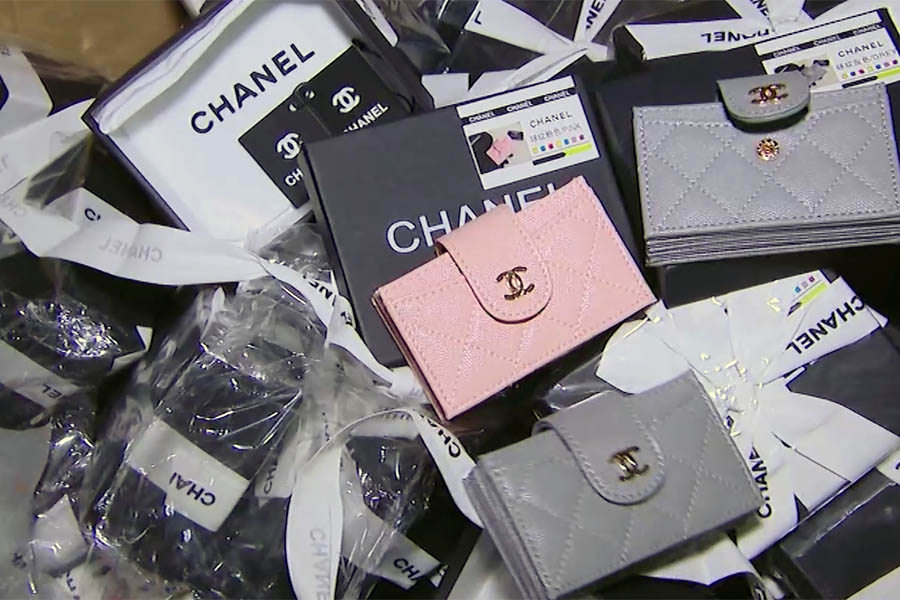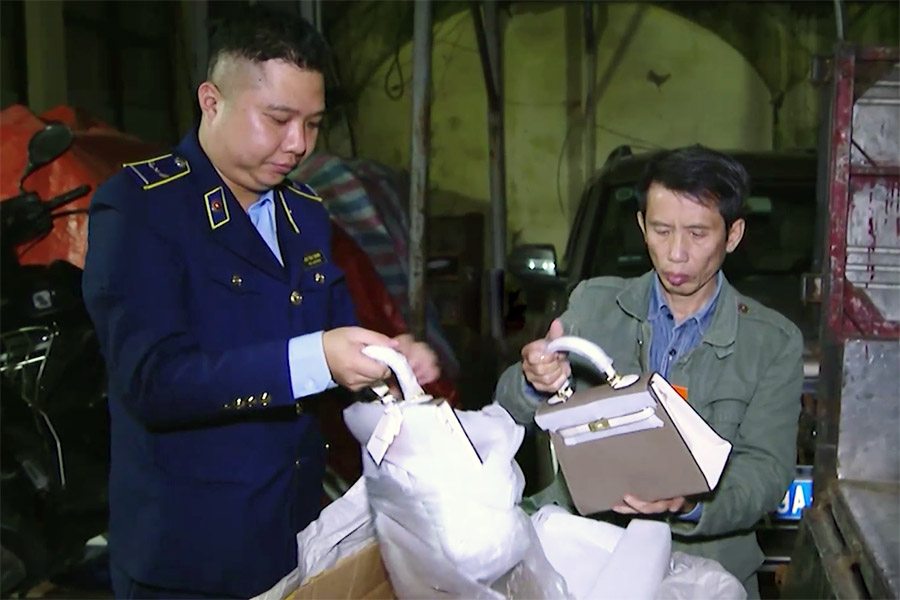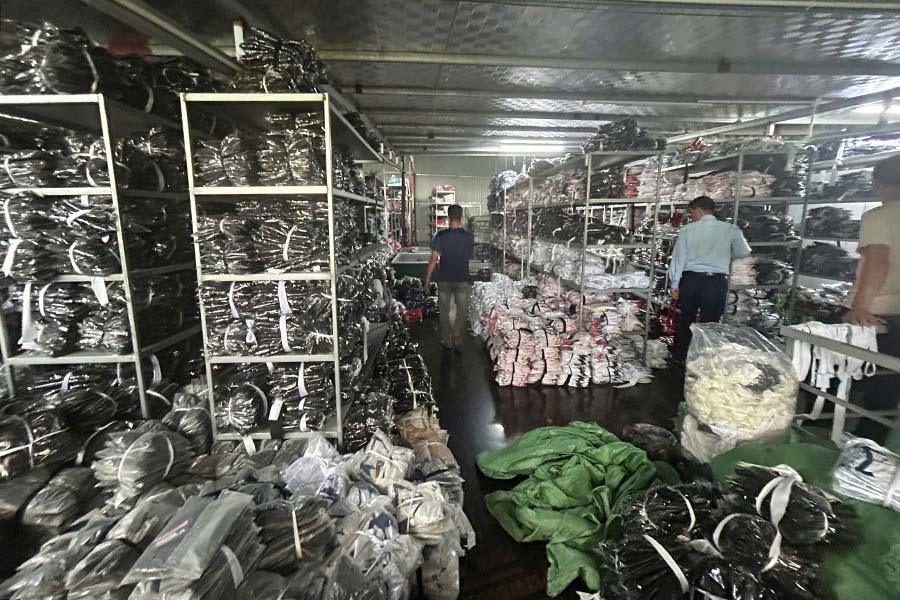In recent years, the situation of production and trading of counterfeit, counterfeit, and poor quality goods has become increasingly complicated and sophisticated.
The violators not only operate at traditional wholesale markets but also expand to cyberspace, using social networks to conceal their actions.
Along with that are distribution networks sneaking from small stores to online sales channels, making it difficult for authorities to check and control.
This behavior not only causes serious damage to businesses, but also causes great tax losses for the State budget.
Branded goods priced at... 50,000 VND
A Hermes brand handbag, if it is real, will cost tens, even hundreds of millions of VND depending on the product code.
However, at a warehouse in Hanoi that was just discovered and handled by Interdisciplinary Inspection Team No. 1 (under the Hanoi Steering Committee 389), the owner of the facility confessed to importing fake Hermes brand handbags at prices ranging from only 50,000 - 60,000 VND/product.
Through the counting, the authorities seized nearly 2,000 counterfeit products in this warehouse.


"I bought goods from social networking sites when I saw them posted for sale. I clearly recognize that this behavior is a violation and a serious violation of intellectual property rights. I am committed to drawing profound experience and absolutely not repeating similar acts in the future, the warehouse owner admitted.
This is just one of thousands of violations of smuggling, counterfeit goods, trade fraud... discovered in Hanoi in recent times.
In October 2025 alone, the functional forces in the Hanoi Steering Committee 389 inspected and arrested 3,378 cases, handled 3,257 violations, of which 3,248 cases were administratively handled, and 09 cases were prosecuted against 19 defendants.
The total amount of money paid to the state budget reached 401.079 billion VND, including administrative fines of 103.863 billion VND, additional fines and tax collection of 292.967 billion VND, and confiscated sales of 4.249 billion VND.
High price and profit differences cause violations to recur
According to Mr. Dinh Thanh Tuan - Deputy Captain of Market Management Team No. 1, Hanoi Market Management Department, to thoroughly resolve the situation of violations of counterfeit goods, it is necessary to clearly identify the core causes.
"Firstly, regarding price differences, genuine, branded goods often have very high selling prices, while counterfeit goods have very cheap prices.
Second is consumer tastes, domestic consumers tend to favor products with famous brands in the world, but can buy them at low prices.
Thirdly, regarding high profits, the subjects and owners of counterfeit goods production facilities, despite having been administratively or criminally prosecuted, continue to repeat their behavior because the profits earned are too large, said Mr. Tuan.
In fact, not only fashion goods, handbags or shoes are counterfeit, but many essential items such as cosmetics, functional foods, electronic components, and even medicine can be counterfeit.
Most of the above products are consumed through social networking platforms with the advertising trick of "hand-carried goods, good prices", defeating consumer psychology.

The authorities warn that people need to raise awareness when shopping online, especially for products with unusually cheap prices, unknown origin or sellers who do not disclose information.
Consuming counterfeit goods, whether unintentional or intentional, contributes to violating the law and affecting the health and rights of consumers.
The last months of 2025 are the period of increased shopping demand, the Hanoi Market Management Department will focus on synchronously implementing plans, programs, and instructions of the Central Government, the City, and the Department of Industry and Trade on the work of preventing and combating smuggling, trade fraud, and counterfeit goods.
The focus is on implementing periodic and thematic inspection plans; strictly implementing the Prime Minister's telegrams and directives and the interdisciplinary inspection plan of the City Steering Committee 389, focusing on inspecting and controlling the market in key areas such as gasoline, tobacco, food, cosmetics, chemicals, gas and industrial explosives.











